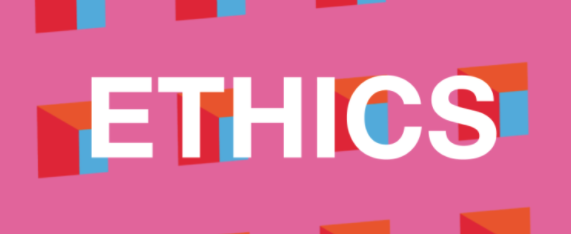
IBM is a leading provider of hybrid cloud and AI, and consulting expertise. It helps clients in more than 175 countries capitalise on insights from their data, streamline business processes, reduce costs and gain the competitive edge in their industries.
Andrea Barbarin is a Senior Design Researcher and Practice Lead at IBM, whose role involves collecting, analysing and drawing insights from qualitative and quantitative data. We talk to Andrea about how she was able to embed data ethics into IBM’s design teams after taking the Open Data Institute (ODI)’s Data Ethics Facilitators and Professionals course.
Background
IBM is a leading innovator in its field, and its teams of designers – over 3000 around the world – regularly deal with large amounts of research and data as they work to create new products and services to cater to evolving user needs. Data ethics and good practice are therefore essential for the organisation’s reputation.
As data becomes ever more prevalent, and use of AI becomes more widespread in solving problems and creating new products and services, there is a growing need for a high level of data literacy at the director level in all organisations. Developing frameworks for dealing with data is a requirement – whether from a legal point of view to ensure compliance with GDPR or in order to uphold the highest standards possible and maintain an organisation’s reputation.
Andrea Barbarin is a Senior Researcher and Practice Lead at IBM, and one of her aims is to provide designers with the awareness, knowledge and tools to act ethically in dealing with data. As design teams conduct research, such as client surveys, it is their responsibility to make participants aware of procedures, their role, how their anonymity and confidentiality is being protected and how their information will be used and to ensure safeguards such as anonymisation.
Working with the ODI
After becoming aware of the ODI’s work and attending various events (including the online lecture series ODI Fridays), Andrea enrolled in the Data Ethics Professionals and Facilitators course which teaches a thorough understanding of data ethics and the steps necessary to help organisations minimise any potential harms that can come from data collection, use and sharing.
Andrea says,
"I have a lot of respect for the ODI and also feel that, being based in the UK, the organisation is at the forefront of data ethics and privacy issues – for example with GDPR – and I look to our colleagues across the pond for leadership. I also used to practise law before I studied for a PhD in Human-Computer Interaction, and so the legal aspects are of interest to me. I wanted to gain some certification in the area of data ethics so that I could confidently set up a data management process for the groups I work with."
The outcome
Since completing the course, Andrea has presented the Data Ethics Canvas to three of IBM’s early careers Design Patterns programmes, and is continually working to improve levels of data literacy within her organisation.
Andrea also teaches a design ethics class for the Master of Human-Computer Interaction and Design program at the University of Washington. She introduces the Data Ethics Canvas to international students from Asia, the Middle East and the United States and encourages students to come up with canvasses of their own that are tailored to their specific field of interest. An example of this is designing for virtual reality or considering gender when creating technology products and services.
Andrea says,
"The training provided a framework that I could share with other people and also gave me a basis for discussing data ethics with my colleagues. We were able to use the Data Ethics Canvas as a starting point to go through some exercises to work out what my team’s needs were in terms of managing our research data. As a result, we have come up with a standard operating procedure which has been reviewed by IBM at a global level and has been shared with other Design Research teams across the organisation.
"It has been a great way to engage design colleagues who are going to have to implement the processes. They have been involved all along the way and have played a part in their creation."
Get involved
The ODI is building a network of Data Ethics Professionals and Facilitators around the world.
This network of individuals has demonstrated itself as competent in data ethics and the practical steps required to help organisations minimise potential harms that come from data collection, use and sharing.
‘ODI Data Ethics Professional’ and ‘ODI Data Ethics Facilitator’ is a quality mark for those who have been assessed by the ODI through our Data Ethics Professionals and Facilitators programme. Certified individuals listed here can deliver professional services to organisations under the ODI Data Ethics Professionals and (where applicable) Facilitators badge.
Find out more about becoming an ODI Certified Data Ethics Professional